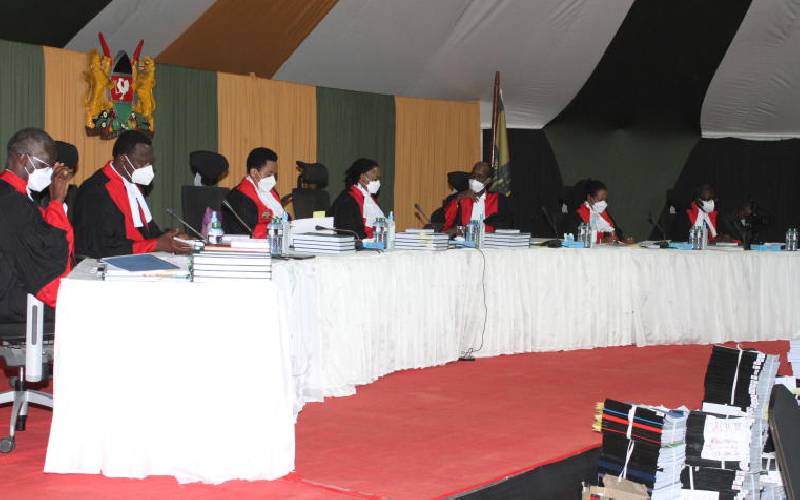×
The Standard e-Paper
Kenya’s Boldest Voice

Supreme Court Justices led by Chief Justice Martha Koome at the Supreme court building on Wednesday, January 19, 2022, during the BBI appeal case. [Collins Kweyu, Standard]
Listening to the Building Bridges Initiative (BBI) appeal at the Supreme Court, one can easily get lost in the nitty-gritty definitions and technicalities. To experts, the case boils down to whether a sitting president can spearhead fundamental constitutional changes using state resources, officers and state patronage.